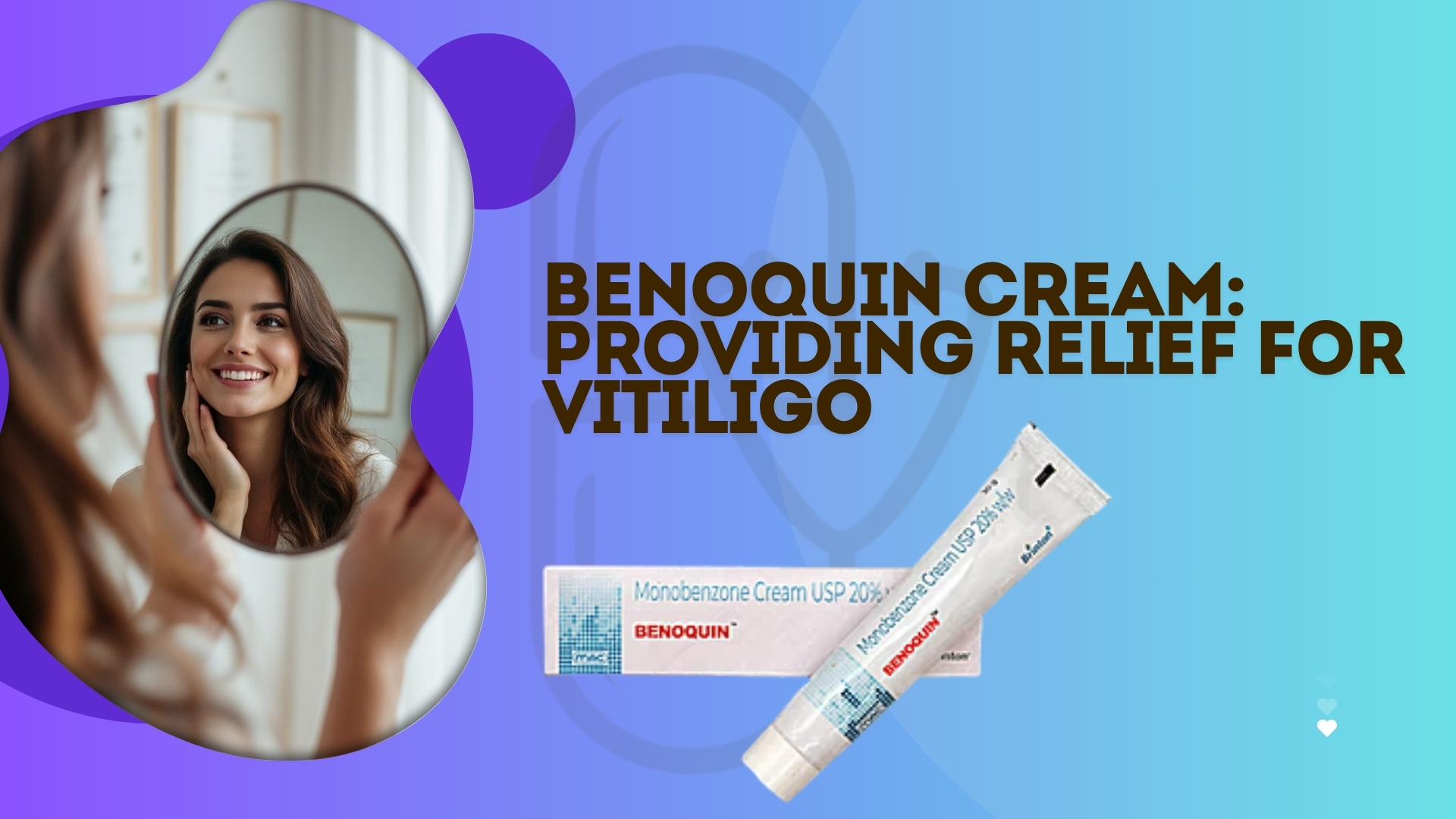Benoquin Cream: Providing Relief for Vitiligo

Vitiligo is a chronic skin condition characterized by the loss of pigmentation, leading to white patches on the skin. It occurs when melanocytes, the cells responsible for producing melanin, stop functioning or die. While vitiligo is not physically harmful, it can significantly affect a person’s confidence and emotional well-being. One of the widely used topical treatments for vitiligo is Benoquin cream 30gm.
What is Benoquin Cream?
Benoquin cream 100gm contains Monobenzone, a depigmenting agent. It is commonly prescribed to patients with extensive vitiligo who have lost most of their skin pigmentation. Benoquin works by permanently depigmenting the remaining pigmented skin, helping create an even skin tone across the body.
How Benoquin Cream Works
Unlike other creams that aim to restore pigment in vitiligo-affected areas, Benoquin works in the opposite way by removing pigment from unaffected areas. It:
- Inhibits melanin production in normal skin
- Destroys melanocytes, the pigment-producing cells
- Helps achieve a uniform appearance by matching all skin areas to the depigmented patches
This treatment is only used when vitiligo is widespread, and repigmentation therapies have not been successful.
Benefits of Benoquin Cream
- Even skin tone: Helps eliminate the contrast between pigmented and depigmented areas.
- Improves appearance: Many users report a boost in confidence and satisfaction after depigmentation.
- Non-invasive treatment: It is a topical solution, making it easier and safer than surgical alternatives.
Precautions and Side Effects
While Benoquin Cream can be effective, it must be used under medical supervision. Potential side effects include:
- Redness and irritation
- Dryness or cracking of the skin
- Sensitivity to sunlight
- Permanent depigmentation (which is its intended effect)
This cream is not recommended for small patches of vitiligo or general skin lightening purposes. It should only be used after consulting a dermatologist.
Conclusion
Benoquin Cream offers a unique solution for individuals with extensive vitiligo, helping them achieve a uniform skin tone by depigmenting the rest of the skin. While the treatment is permanent and requires careful use, it can significantly improve the quality of life for those dealing with widespread vitiligo. Always seek professional medical advice before starting any treatment with Benoquin.
Are There Any Concerns Patients Should Be Aware Of?
Overall, Benoquin cream is quite effective in addressing vitiligo in individuals while not significantly impacting overall health. Most users typically don’t experience any serious side effects from the cream.
Nevertheless, in some instances, there are a few side effects related to the area where the cream is applied that you should be aware of.
These can include:
– Rashes
– Itching
– Burning sensations
– Inflammation
– Redness
If these symptoms occur, there’s no need for concern, as they usually resolve on their own within a few days. However, should the symptoms intensify, it is important to consult your physician.
An effective approach to mitigate these problems is to decrease the dose. However, it is important to note that there is a rare possibility that individuals might have an allergy to Benoquin cream 30gm, and in such instances, even a minimal application can quickly worsen these side effects.
Frequently Asked Questions
Is It Appropriate To Use Benoquin Cream During Pregnancy?
Yes, research indicates that it does not negatively affect the health of a pregnant woman using it.
How Long Should You Use Benoquin Cream?
Typically, benefits from the cream are not noticeable unless it’s applied consistently over several weeks or months.
Is It Safe For Mothers Who Are Breastfeeding?
No, according to research, breastfeeding mothers should refrain from using this cream until the baby is old enough to consume other types of food aside from breastmilk.
Is It Compatible With All Skin Types?
No, there is a risk of allergic reactions for those with particularly sensitive skin or those who are exposed to sunlight.

